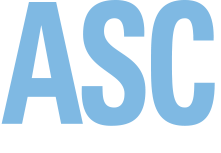Plastic Footprints
Plastic has transformed life for humans in both positive and negative ways. It’s a necessary material in healthcare but is often used for non-essential purposes as well, from single-use water bottles to bags. Because it takes so long to break down in nature, plastic poses a threat to aquatic ecosystems. Read up on creative ways to reduce your plastic footprint in the books below.
Life Without Plastic
By Chantal Plamondon. Salem, Mass.: Page Street Publishing Co., 2017.
As new parents concerned with plastic chemical leaching in baby products, Jay Sinha and Chantal Plamondon set out to find alternative options for household goods. The book explores ways to analyze personal plastic use, find alternatives and create easy replacements in a step-by-step guide to reducing your own plastic use.
Plastic Free: How I Kicked the Plastic Habit and How You Can Too
By Beth Terry. New York, N.Y.: Skyhorse Publishing, 2015.
The creator of the blog My Plastic-Free Life provides personal anecdotes, stats about the environmental and health problems related to plastic, and personal solutions with charts and tips on how to limit one’s plastic footprint and get involved in community action.
One Plastic Bag: Isatou Ceesay and the Recycling Women of Gambia
By Miranda Paul. Minneapolis, Minn.: Millbrook Press, 2015.
A children’s book about the power of reusing plastic to create beauty, strengthen community and provide economic opportunity for women in Gambia.
What Milly Did: The Remarkable Pioneer of Plastics Recycling
By Elise Moser. Toronto, Calif.: Groundwood Books/House of Anansi Press, 2016.
The global recycling standard – those small numbered triangles on plastic containers – was established after Milly Zantow sought a solution to her town’s landfill problems. A great book for children about recycling, plastics and creating change through activism and determination.
Please visit the Wisconsin Water Library online at waterlibrary.aqua.wisc.edu for more information about the library’s resources on climate.
Anyone in Wisconsin can borrow these books. Just email askwater@aqua.wisc.edu.



